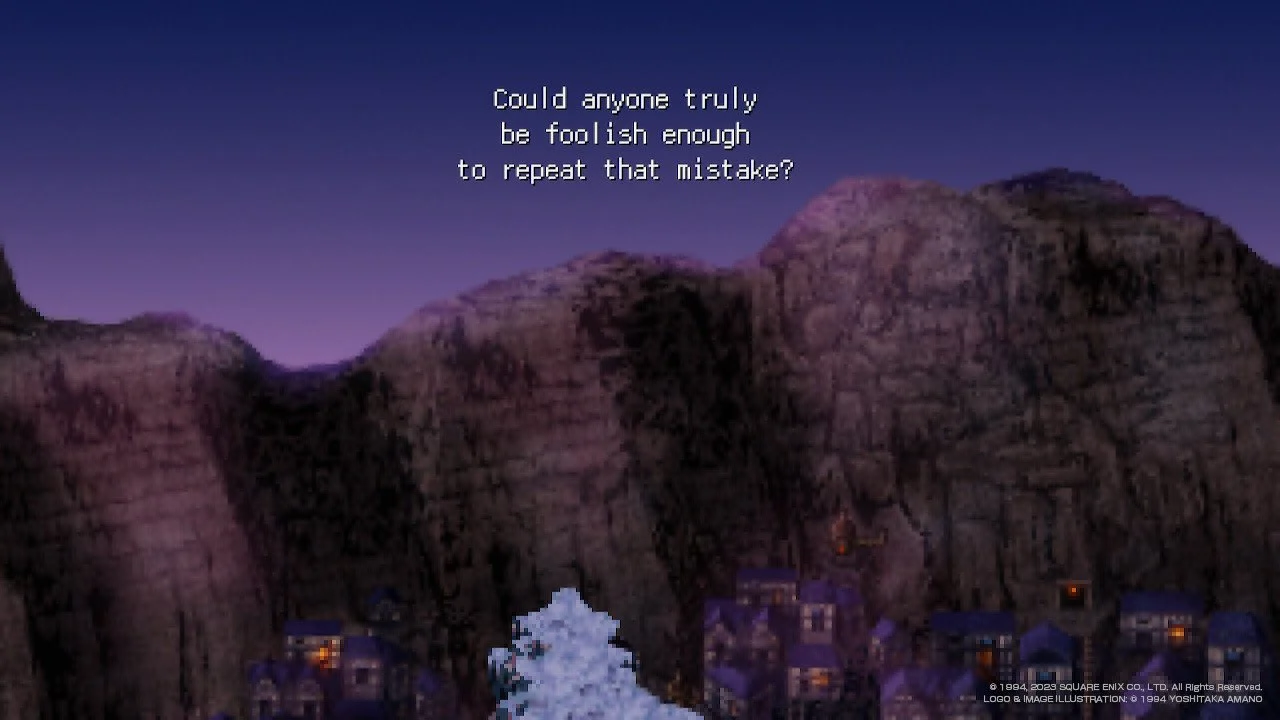
From Square Enix’s Final Fantasy VI: Pixel Remaster (2023)
5 mistakes all first-time video game creators make – including us
At Yuzupulse, we’ve been working on our first commercial video game since sometime in 2023. That might seem like a long time – and it probably is. Or maybe not.
Anyway, we’ve heard about several traps related to a small team’s first video game project. Think teams of 10 people or less, including solo developers. People warned us against several, yet we’ve fallen – to a degree – into almost all of them.
Really, video game creation takes time. And most, if not all, professionals we talked to or attended the conferences of agree on one thing about the first video game project of a team: the first project of the first studio of a team is more about learning the process to ship a game than about creating the next hit.
And we might all hear the advices below, yet, without realising it, we might be ignoring most of them, if not all.
1. Starting with your dream project
If you want to create a video game, there are video games that you love. Chances are that in your wildest dreams, you would like to create one inspired by your favorite games. That’s your first trap. Your favorite games are most likely to have been developed by a big team with a big budget, or for smaller indie games, by experienced designers or developers.
Also, you do have to like your game project, but if you’re in love with it, the chances for you to ignore feedback – from funders, players, and testers – are too high. Pride could get into your way.
And if you want to go all in on your very first project, you might have nothing to fall back on in case you have to stop working on it, and your disappointment will be higher. So protect yourself from… well, yourself.
2. Thinking too big
Ok, so you’ve decided not to start off with your dream project. Congrats!
But a new challenger appears: your second project idea has too big a scope for a first project. You think you’ll create it in 3 months, but it might take you 3 years in the end.
‘Nah, I’m fine. This one is smaller than my dream project, so I’ll totally be able to make it.’
Spoiler alert: until you’ve created and shipped a game from A to Z, you aren’t conscious of the challenges in front of you, nor of your ability to face them. Your enemies might not lie in the game creation itself, but in supporting tasks: testing, knowing how to take feedback into account, communication, marketing, localization, community management, partnerships, etc. So many jobs are necessary for video game creation, and it’s unlikely that you’re a full professional in all these areas. So you have to make smart choices.
The internet is full of examples of game projects that got smaller and smaller as production progressed: that’s normal. You can’t be innovative on 100% of aspects of your game on your first shot. And that’s ok: your first game can still show your creativity even if it is short.
Again, the main point of your first project should be to learn how to ship a game. Then you’ll be able to make a better one in a next project.
3. Not having a source of additional income
To link back to the fact that your project could take more time than initially planned – for reasons linked to production, or for personal reasons -, the resources (time and money) you have initially budgeted might not be sufficient.
This is why we all receive the advice of having an (additional) revenue stream. You can offer freelance services in your area of expertise, have a part-time job, or use public or private funding opportunities. Ideally, this revenue stream should not be dependent on your game project though. Because if you need to cancel or pause it, then you’re free to do so.
But hey, why would you stop your game project?
4. Not taking enough care of yourself
Because while you were committing to your game, you forgot about yourself. It’s a work of passion, a work of art, and a technical piece. There are always things you could develop, you could improve, or you could learn. You forgot about your comfort zone and are always in your stretch or stress zone.
You sacrifice your sleep because you want to make progress, or you can’t get rid of your new ideas at night. Then, because you’re tired, you meet your friends and family less often.
But do you know what makes studios sustainable over time? A team. If your team or its key members burn out, your studio burns out as well.
So keep living a healthy lifestyle on average, because your video game doesn’t need you to burn out, it needs sustained work.
5. Waiting for everything to be perfect before sharing your work
Self-censorship and imposter syndrome are likely to knock on your door. Learn how to set yourself goals and a roadmap to make sure your project, and ideally your mind, don’t suffer from these challengers.
You will need to show your game while it’s still a draft diagram, while it’s still a quick sketch on paper, while it’s full of placeholders, and, in sum, when it’s still ugly. That’s the only way you can get feedback from players, funders, publishers, etc.
That’s the whole point of the “make it exist first, you can make it good later” trend in indie games.
Video game creation is an iterative process in all its aspects. So do iterat
Conclusion
Is all I wrote in the article true? Maybe not for everyone. But my colleagues and I heard about these challenges in enough examples to be able to say that they’re important to pay attention to.
You can take the example of Miju Games, who started with the dream game that flopped, and then adopted a more targeted process and managed to release a hit: Strategic decisions for fast and efficient shipping: Planet Crafter | A. Bernardi & B. Cavallini (captions available):
